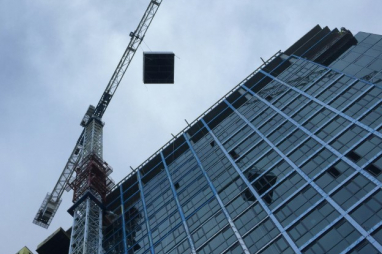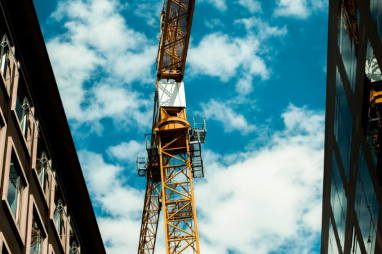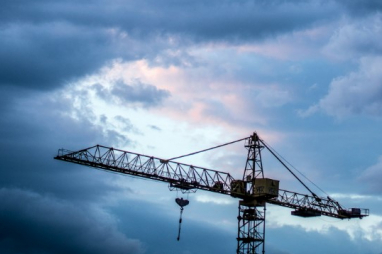- AIR Polaire JORDAN8 “Aqua” DZ3356 - Кросівки jordan delta mid dc2130 006 , 001 - 127-0Shops
- Air Jordan 11 Retro Cool Grey 2021 Cool Grey , IetpShops , Michael Jordan In The "White Cement" Air Jordan Retro IV (4)
- Adidas x Pharrell NMD HU Gold - adidas Nizza Platform Mid Parley Almost Blue W Release Date - SBD
- the nike kobe a d exodus releases in new flavors
- AspennigeriaShops , 5 Best Adidas Classic Trainers in 2024 , jam tangan adidas sport original
- air jordan 1 mid chicago 2020 554724 173
- eastbay restock large amount air jordans
- on feet air jordan 1 low chicago
- Air Jordan 1 Satin Black Toe CD0461 016 2019 Release Date 4
- all star air jordan 1 gotta shine
- Home
- News and analysis
- Info hubs
- Events
- Video
- Case Studies
- About us
- Magazine
- Advertising
Produced for the industry by the Association for Consultancy and Engineering
News
Fastest rise in construction output for four months, PMI figures reveal

November saw the fastest rise in UK construction output for four months, with the recovery led by a robust rise in commercial work as the number of firms reporting supplier delays continued to ease, according to the latest monthly PMI.
UK construction companies indicated a sharp increase in business activity during November, led by the fastest upturn in commercial work since July as clients continued to boost spending in response to the reopening of the UK economy.
There were signs that the worst phase of supplier delays may have passed, with the portion of survey respondents citing longer delivery times falling to 47% in November (compared with a peak of 77% in June). Rapid input price inflation persisted and haulage driver shortages added to cost pressures, but the latest overall rise in operating expenses was the least marked for seven months.
At 55.5 in November, up from 54.6 in October, the headline seasonally adjusted IHS Markit/CIPS UK Construction PMI® Total Activity Index signalled a robust and accelerated expansion of overall construction activity. The index has now posted above the 50.0 no-change value for ten consecutive months and the latest reading pointed to the strongest rate of expansion since July.
A steeper rise in commercial construction (index at 56.5) helped offset a sight showdown in house building growth (54.7, down from 55.4). Civil engineering was the weakest performing area in November (53.9), although the latest rise in activity was the largest since August.
Another solid increase in new business volumes helped to boost construction output during November, with this index hitting a three-month high. Survey respondents mostly noted that improving client demand had led to increased numbers of new enquiries, although some firms suggested that supply constraints had a negative impact on confidence.
Construction firms sought to increase their business capacity in November, as signalled by another steep rise in staffing numbers. That said, the overall speed of job creation eased to an eight-month low. Sub-contractor usage also increased at a slower pace in November. The latest survey also indicated that sub-contractor availability decreased to the least marked extent since May.
November data pointed to another robust rise in demand for construction products and materials. Higher levels of input buying reflected a combination of increased workloads and efforts to build inventories due to supplier delays.
The index measuring overall supplier performance reached it highest level since April, but remained well inside negative territory. Around 47% of the survey panel reported longer lead times in November, while only 4% reported an improvement.
Port delays and a severe lack of transport availability due to haulage driver shortages continued to hold back supplier performance, although firms noted an improvement in the availability of specific items (especially timber).
Around 72% of the survey panel reported an increase in purchase prices in November, while only 3% reported a decline. That said, the resulting index signalled the least marked rate of cost inflation since April. Rapid price pressures and supply shortages were a factor dampening business optimism in November. Latest data signalled the weakest output growth projections for four months.
Tim Moore, director at IHS Markit, which compiles the survey, said: "November data highlighted a welcome combination of faster output growth and softer price inflation across the UK construction sector. Commercial building led the way as recovering economic conditions ushered in new projects, which helped compensate for the recent slowdown in house building. Major infrastructure work also boosted construction activity in November, as signalled by the fastest growth in the civil engineering category since August.”
Duncan Brock, group director at the Chartered Institute of Procurement & Supply, said: "UK construction enjoyed a rebound in November with the fastest level of output growth for four months as supply chain managers increased their purchasing activity to meet a strong pipeline of new building projects. Commercial orders were the strongest, picking up the slack from the subdued housing and civil engineering sectors and demonstrating that business confidence in the UK economy was improving.”
Matthew Farrow, director of policy at the Association for Consultancy and Engineering, said: “This month’s figures will be welcomed by many in the industry who will be delighted to see supplier delays easing, as well as a drop in inflationary pressures on inputs. Of course, the optimism displayed in these numbers might subsequently be tempered by the recent emergence of the new strain of the pandemic and it remains to be seen how this might impact on the industry and wider economy in the medium term. However, going into the holiday period, we should be pleased that there is a degree of optimism for a continued easing of pressures in 2022.”
Mark Robinson, group chief executive at SCAPE, said: “Continued growth should give the construction industry every reason to be optimistic heading into 2022. While the winter months always have an impact on major projects getting off the ground, contractors appear to have weathered, or at least learned to work around, the supply and labour shortages that threatened to undermine the industry’s ability to deliver in the face of increased demand. But firms will be wary of the potential impact of the Omicron variant, which could further affect imports of building supplies, should the UK face another period of tighter restrictions.”
Jan Crosby, head of infrastructure, building and construction at KPMG UK, said: “The sector has coped admirably throughout 2021, considering for a large part of the year global supply chain issues and labour shortages in the UK provided testing headwinds. Now the industry faces the spectre of having to contend with Omicron too. While, so far, the new variant has had little to no impact on activity, it’s difficult at this stage to see how this plays out. Another tightening of restrictions, which could see more workers needing to self-isolate, could create further delays or shut down sites altogether.
“It is a shame there is so much to contend with because the fundamentals in the industry remain robust. There are plenty of national infrastructure projects to boost contractors’ pipelines and strong demand in the housing market is keeping prices high while providing an incentive to builders to ramp up the delivery of new homes.”
PMI data was collected between 12-29 November 2021.





